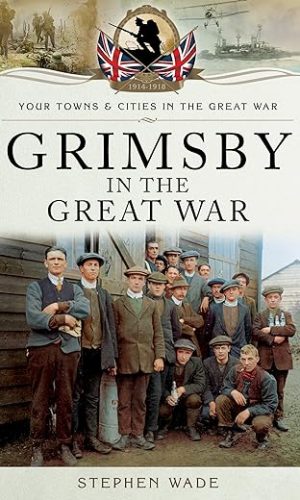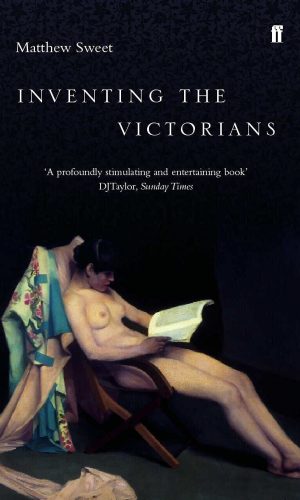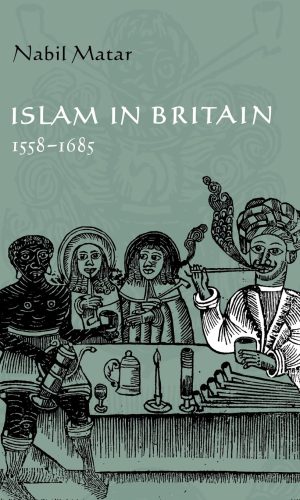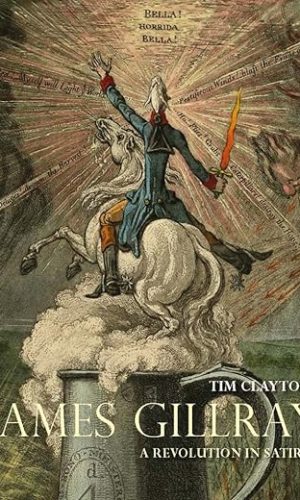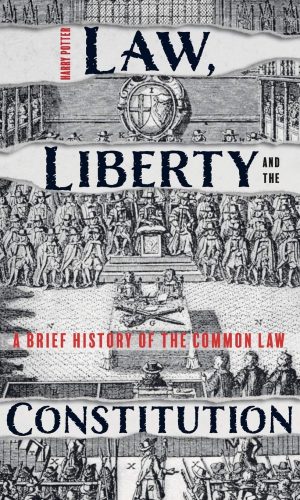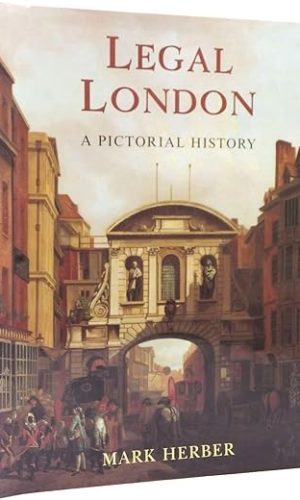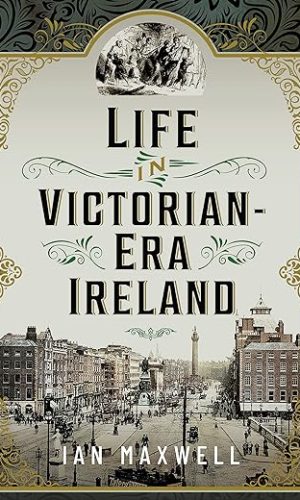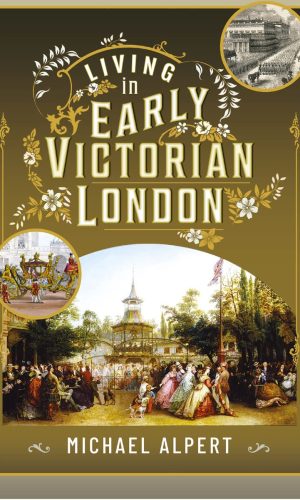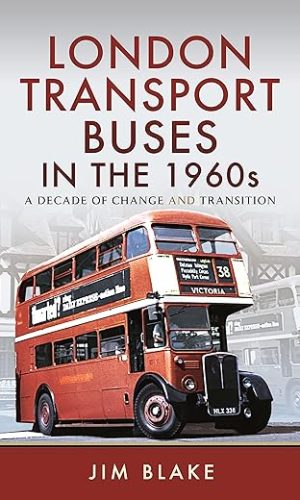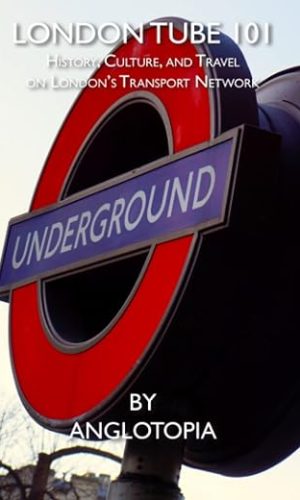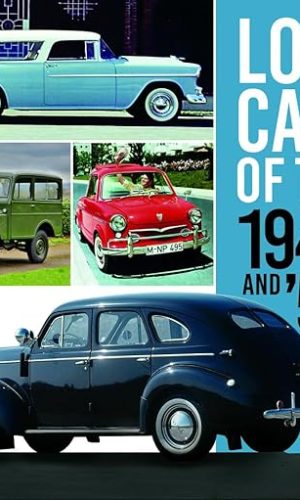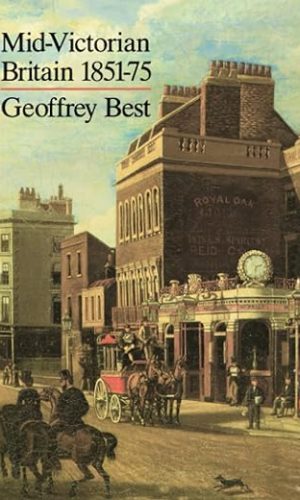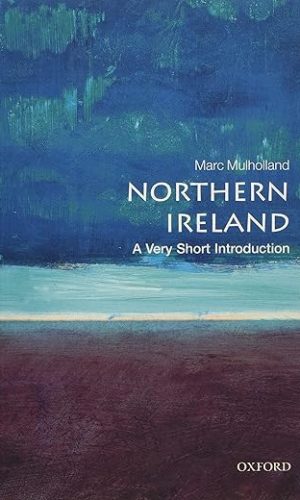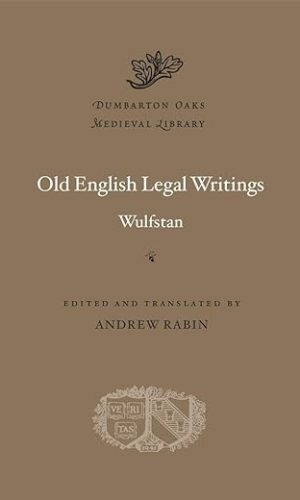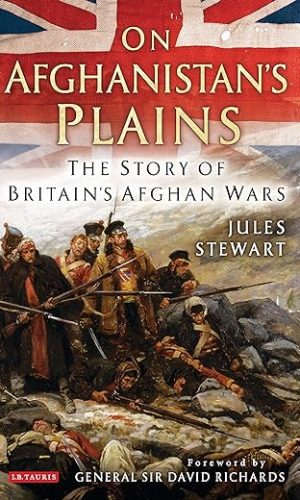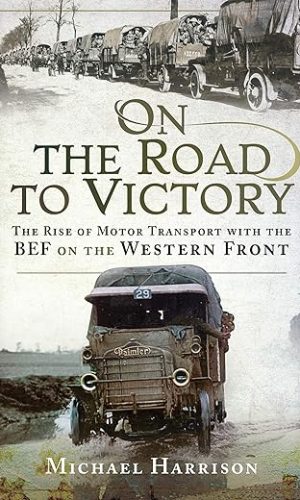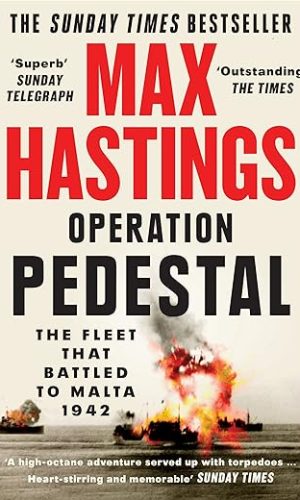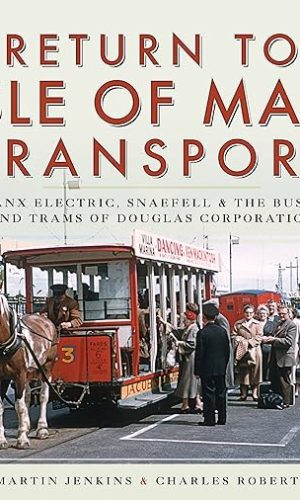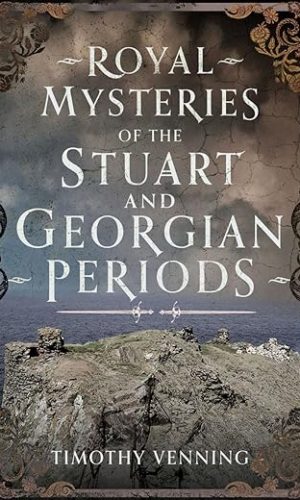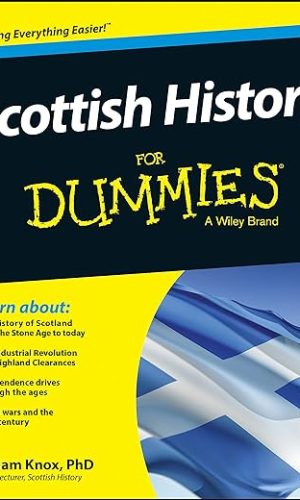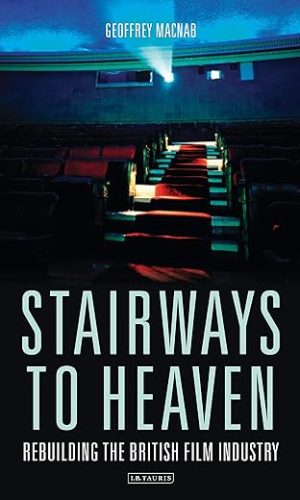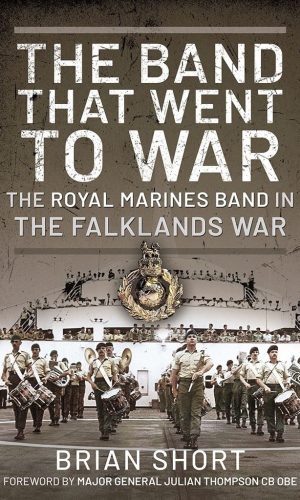Great Britain
-
Grimsby in the Great War (Your Towns and Cities in the Great War)
An account of the Home Front experience in Grimsby.Read more
£7.20£9.50 -
Helicopters and North Sea Oil: A Story of Service, Danger and Survival
A series of personal accounts by highly trained helicopter pilots, including those with distinguished careers in the military and commercial flying, who with divers, ensured that essential staff could operate in North Sea oil exploration and oil supply. They were the vital link in the process and operated in the most challenging circumstances, often in high levels of danger and sometimes with loss of life, for example, the Piper Alpha Disaster which made national news. And the ferrying of essential personnel and supplies could involve rescues as well routine flying missions. The narrative is often technical but written to ensure good understanding for lay readers and it will, of course, appeal to the many with flying experience in the forces, in commercial flying and government service. Above all, it is a series of graphic personal stories as recounted by individuals faced with extremes of climate, weather, technical, engineering and aeronautical problems and often with human life at stake. The people come to life and with domestic and social concerns and interests are ‘real’ and believable people. It is history of the North Sea oil episode in UK political and economic history and in conjunction with international oil politics is of huge importance to Britain’s economy. This is a period of progress to domestic oil independence by about 1984 and so a key period with subsequent importance even to the present. All aspects of the operations are covered within individual stories, and include the broader questions of company policy, regulation, and trade union involvement.Read more
£20.00£23.80 -
Imperial Persuaders: Images of Africa and Asia in British Advertising (Studies in Imperialism)
The first book to provide an historical survey of images of black people in advertising during the colonial period. Analyses the various conflicting, and changing ideologies of colonialism and racism in British advertising. Reveals the historical and production context of many well known advertising icons, as well as the specific commercial interests that various companies’ images projected. Provides a chronological understanding of changing colonial ideologies in relation to advertising, while each chapter explores images produced to sell specific products, such as soap, cocoa, tea and tobacco. — .Read more
£48.00 -
Introduction to English Legal History
Fully revised and updated, this classic text provides the authoritative introduction to the history of the English common law. The book traces the development of the principal features of English legal institutions and doctrines from Anglo-Saxon times to the present and, combined with Baker and Milsom’s Sources of Legal History, offers invaluable insights into the development of the common law of persons, obligations, and property, and also of criminal and public law. It is an essential reference point for all lawyers, historians and students seeking to understand the evolution of English law over a millennium.The book provides an introduction to the main characteristics, institutions, and doctrines of English law over the longer term – particularly the evolution of the common law before the extensive statutory changes and regulatory regimes of the last two centuries. It explores how legal change was brought about in the common law and how judges and lawyers managed to square evolution with respect for inherited wisdom.
Read more
£42.70 -
Inventing the Victorians
Suppose that everything we think we know about ‘The Victorians’ is wrong? That we have persistently misrepresented the culture of the Victorian era, perhaps to make ourselves feel more satisfyingly liberal and sophisticated? What if they were much more fun than we ever suspected? Matthew Sweet’s Inventing the Victorians has some revelatory – and entertaining – answers for us.
As Sweet shows us in this brilliant study, many of the concepts that strike us as terrifically new – political spin-doctoring, extravagant publicity stunts, hardcore pornography, anxieties about the impact of popular culture upon children – are Victorian inventions. Most of the pleasures that we imagine to be our own, the Victorians enjoyed first: the theme park, the shopping mall, the movies, the amusement arcade, the crime novel and the sensational newspaper report. They were engaged in a well-nigh continuous search for bigger and better thrills. If Queen Victoria wasn’t amused, then she was in a very small minority . . .
Matthew Sweet’s book is an attempt to re-imagine the Victorians; to suggest new ways of looking at received ideas about their culture; to distinguish myth from reality; to generate the possibility of a new relationship between the lives of nineteenth-century people and our own.
Read more
£8.30£10.40Inventing the Victorians
£8.30£10.40 -
Islam in Britain, 1558-1685
This book examines the impact of Islam on Britain between 1558 and 1685. Professor Matar provides a perspective on the transformation of British thought and society by demonstrating how influential Islam was in the formation of early modern British culture. Christian-Muslim interaction was not, as is often thought, primarily adversarial; rather, there was extensive cultural, intellectual and missionary engagement with Islam in Britain. The author documents conversion both to and from Islam, and surveys reactions to these conversions. He examines the impact of the Qur’an and Sufism, not to mention coffee, on British culture, and cites extensive interaction of Britons with Islam through travel, in London coffee houses, in church, among converts to and from Islam, in sermons and in plays. Finally, he focuses on the theological portrait of Muslims in conversionist and eschatological writings.Read more
£36.10Islam in Britain, 1558-1685
£36.10 -
James Gillray: A Revolution in Satire
A lavishly illustrated biography of James Gillray, inventor of the art of political caricature
James Gillray (1756–1815) was late Georgian Britain’s funniest, most inventive, and most celebrated graphic satirist and continues to influence cartoonists today. His exceptional drawing, matched by his flair for clever dialogue and amusing titles, won him unprecedented fame; his sophisticated designs often parodied artists such as William Hogarth, Joshua Reynolds, and Henry Fuseli, while he borrowed and wittily redeployed celebrated passages from William Shakespeare and John Milton to send up politicians in an age―as now―where society was fast changing, anxieties abounded, truth was sometimes scarce, and public opinion mattered.
Tim Clayton’s definitive biography explores Gillray’s life and work through his friends, publishers―the most important being women―and collaborators, aiming to identify those involved in inventing satirical prints and the people who bought them. Clayton thoughtfully explores the tensions between artistic independence, financial necessity, and the conflicting demands of patrons and self-appointed censors in a time of political and social turmoil.
Distributed for the Paul Mellon Centre for Studies in British ArtRead more
£34.80£47.50James Gillray: A Revolution in Satire
£34.80£47.50 -
Kings Queens Bones & Bastards: Who’s Who in the English Monarchy from Egbert to Elizabeth II
Who invented the ‘House of Windsor’ as a royal name? Who founded Westminster Abbey? Which king had twenty-one illegitimate children? This book describes the most memorable features of the life and times of each king or queen – from Egbert, crowned in 802 and considered the first king of England, to Queen Elizabeth II.Read more
£11.70£14.20 -
Law, Liberty and the Constitution: A Brief History of the Common Law
A new approach to the telling of legal history, devoid of jargon and replete with good stories, which will be of interest to anyone wishing to know more about the common law – the spinal cord of the English body politic. Throughout English history the rule of law and the preservation of liberty have been inseparable, and both are intrinsic to England’s constitution. This accessible and entertaining history traces the growth of the law from its beginnings in Anglo-Saxon times to the present day. It shows how the law evolved from a means of ensuring order and limiting feuds to become a supremely sophisticated dispenser of justice and the primary guardian of civil liberties.This development owed much to the English kings and their judiciary, who, in the twelfth century, forged a unified system of law – predating that of any other European country – from almost wholly Anglo-Saxon elements. Yet by theseventeenth century this royal offspring – Oedipus Lex it could be called – was capable of regicide. Since then the law has had a somewhat fractious relationship with that institution upon which the regal mantle of supreme power descended, Parliament. This book tells the story of the common law not merely by describing major developments but by concentrating on prominent personalities and decisive cases relating to the constitution, criminal jurisprudence, and civil liberties. It investigates the great constitutional conflicts, the rise of advocacy, and curious and important cases relating to slavery, insanity, obscenity, cannibalism, the death penalty, and miscarriages of justice. The book concludes by examining the extension of the law into the prosecution of war criminals and protection of universal human rights and the threats posed by over-reaction to national emergencies and terrorism. Devoid ofjargon and replete with good stories, Law, Liberty and the Constitution represents a new approach to the telling of legal history and will be of interest to anyone wishing to know more about the common law – the spinal cordof the English body politic. Harry Potter is a former fellow of Selwyn College, Cambridge and a practising barrister specialising in criminal defence. He has authored books on the death penalty and Scottish history andwrote and presented an award-winning series on the history of the common law for the BBC.Read more
£15.90£19.00 -
Legal London: A Pictorial History
London has been home to more lawyers, for more centuries, than any other city on earth. Paris ran it neck-and-neck until the 18th century, after which London romped away as the national and then imperial capital of a legal system with centralized Royal Courts of Justice, Inns of Court, Courts of Appeal, debtors prisons, the Old Bailey, the Archbishop’s Court at St Mary le Bow, the Bridewell, the notorious Fleet Prison, and the Metropolitan Police. No other city so celebrates, in surviving buildings and institutions, the work of judges, lawyers, litigants, criminals, and the police! This new book does justice to them all. Covering both civil and criminal aspects of the law, the author’s narrative account is enormously expanded by 200 photographs and engravings, each fully captioned; plus maps to show the location of the courts, Inns, prisons, and other places of punishment throughout the metropolis. This fascinating study of the law at work in days gone by is both entertaining and informative. Though of particular value to everyone interested in London history, it will appeal to members of the legal and law enforcement professions everywhere that the “English” system and tradition has left its mark.Read more
£3.20 -
Life in Victorian Era Ireland
There are many books which tackle the political developments in Ireland during the nineteenth century. The aim of this book is to show what life was like during the reign of Queen Victoria for those who lived in the towns and countryside during a period of momentous change. It covers a period of sixty-four years (1837-1901) when the only thing that that connected its divergent decades and generations was the fact that the same head of state presided over them. It is a social history, in so far as politics can be divorced from everyday life in Ireland, examining, changes in law and order, government intervention in education and public health, the revolution in transport and the shattering impact of the Great Famine and subsequent eviction and emigration. The influence of religion was a constant factor during the period with the three major denominations, Roman Catholic, Anglican and Presbyterian, between them accounting for all but a very small proportion of the Irish population. Schools, hospitals, and other charitable institutions, orphan societies, voluntary organisation, hotels, and even public transport and sporting organisations were organised along denominational lines. On a lighter note, popular entertainment, superstitions, and marriage customs are explored through the eyes of the Victorians themselves during the last full century of British rule.Read more
£17.30£19.00Life in Victorian Era Ireland
£17.30£19.00 -
Living in Early Victorian London
London in the 1840s was sprawling and smoke-filled, a city of extreme wealth and abject poverty. Some streets were elegant with brilliantly gas-lit shop windows full of expensive items, while others were narrow, fetid, muddy, and in many cases foul with refuse and human filth. Railways, stations and sidings were devouring whole districts and creating acres of slums or ‘rookeries’ into which the poor of the city were jammed and where crime, disease and prostitution were rife.The most sensational crime of the epoch, the murder of Patrick O’Connor by Frederick and Maria Manning, filled the press in the summer and autumn of 1849. Michael Alpert uses the trial record of this murder, accompanied by numerous other contemporary sources, among them journalism, diaries and fiction, to show how day-to-day lives, birth, death, sickness, work, shopping, cooking, and buying clothes, were lived in the crowded, noisy capital in the early decades of Victoria’s reign. These sources illustrate how ordinary people lived in London, their incomes, entertainments, religious practice, reading and education, their hopes and anxieties. Life in Early Victorian London reveals how ordinary people like the Mannings and thousands of others experienced their multifaceted lives in the greatest capital city of the world.
Early Victorian London lived on the cusp of great improvements, but it was a city which in some aspects was mediaeval. Its inhabitants enjoyed the benefit of the Penny Post and the omnibus, and they were protected to some extent by a police force. The Mannings fled their crime on the railway, were trapped by the recently-invented telegraph and arrested by ‘detectives’ (a new concept and word), but they were hanged in public as murderers had been for centuries, watched by a baying, drunken and swearing mob.
Read more
£8.50 -
London Transport Buses in the 1960s: A Decade of Change and Transition
Just as life in Britain generally changed dramatically during the 1960s, so did London Transport’s buses and their operations. Most striking was the abandonment of London’s trolleybuses, once the world’s biggest system, and their replacement by motorbuses. Begun in 1959 using surplus RT-types, it was completed by May 1962 using new Routemasters, designed specifically to replace them. They then continued to replace RT types, too. Traffic congestion and staff shortages played havoc with London Transport’s buses and Green Line coaches during the 1960s, one-man operation was seen as a remedy for the latter, shortening routes in the Central Area for the former. Thus the ill-fated “Reshaping Plan” was born, introducing new O.M.O. bus types. These entered trial service in 1965, and after much delay the plan was implemented from September 1968 onwards. Sadly, new MB-types, also introduced in the Country Area, soon proved a disaster! Unfortunately, owing to a government diktat, Routemaster production ended at the start of 1968, forcing LT to buy “off-the-peg” vehicles unsuited to London operation and their in-house overhaul procedures. The decade ended with the loss of LT’s Country Area buses and Green Line coaches to the National Bus Company. Photographer Jim Blake began photographing London’s buses towards the end of the trolleybus conversion programme in 1961 and continued dealing with the changing scene throughout the decade. He dealt very thoroughly with the “Reshaping” changes, and many of the photographs featured herein show rare and unusual scenes which have never been published before.Read more
£20.00£23.80 -
London Tube 101: History, Culture, and Travel on London’s Transport Network
We are thrilled to announce Anglotopia’s newest book: London Tube 101- History, Culture, and Travel on London’s Transport Network. This new publication is your complete guidebook to London’s iconic transport network’s history, culture, and guide to using the famous London Tube network. The book will be released in September and we need to start pre-orders now.
We do a deep dive into the London Tube’s fascinating history, covering the history of the tube network, fascinating stories, London’s abandoned and hidden Tube stations and so much more. This comprehensive book covers everything from the first Metropolitan Railway to the newly opened Elizabeth Line. In addition to all of this, we’ll provide useful and practical information using the network on your travels. It’s a combination of a history book, guidebook, and culture book.
Following a similar format to our previous books, such as 101 Budget Britain Travel Tips and 101 London Travel Tips it is a pleasure to read. Tube enthusiasts will adore this 300-page book, sure to learn something new about the most famous rail network in the world. From the history of every tube line, including facts about each tube line, to long-reads on the history of specific Tube-related topics, this comprehensive guide is a must-have for the Tube enthusiast.
Read more
£19.00 -
Lost Cars of the 1940s and ’50s
Sixty diverse cars, sixty fascinating stories, sixty contrasting specifications, just one uniting factor: they’re all forgotten, neglected or misunderstood classics.
Motoring in the 1940s and ’50s spanned from post-war austerity to the you’ve-never-had-it-so-good era. It was a time when engines gained more power, suspension became more cosseting, the chassis frame was rendered a thing of the past, and styling followed jet fighters and later space rockets. Many cars found success across the world, but others barely got off the ground and quickly vanished from our collective consciousness.
In Lost Cars of the 1940s and ’50s, award-winning author Giles Chapman presents an all-new selection of the intriguing strays of the car world. Rarely seen archive and contemporary images bring daring new designs, economy models and some extraordinary luxury cars back to life … even if they misfire once again in the process.
Read more
£17.40£19.00Lost Cars of the 1940s and ’50s
£17.40£19.00 -
Medical Services in the First World War (Shire Library)
The number of wounded in the First World War was unprecedented, and inadequate military planning presented the medical and voluntary community with huge and daunting challenges. Yet in the face of tremendous adversity both tackled their work with resourcefulness, courage and great humanity. This book is the illustrated story of those who risked their lives collecting casualties from the front line, of the various transport and treatment facilities at their disposal and of the eclectic mix of buildings in which the wounded were cared for at home, including many famous country houses. The vital part played by nurses, both in terms of essential medical duties and in boosting morale among the patients, is also examined, rounding off this perfect introduction to medical care in the First World War.Read more
£7.60£8.50 -
MID-VICTORIAN BRITAIN 1851-75
One of the most approachable and useful books on the period.Read more
£14.20 -
Moseley 1850-1900: Space, place and people in a middle-class Birmingham suburb
_______
During the second half of the nineteenth century, Moseley, a small hamlet just south of Birmingham, developed into a flourishing middle-class suburb. Drawing on a wealth of primary sources, Janet Berry’s ambitious research asks why and how this particular suburb grew and who was instrumental in its development. What influenced the types of houses that were built and the styles of their gardens? How did residents experience life in the new suburb? How did they create a community?
In analysing an extraordinary quantity of records, Dr Berry builds a notably nuanced portrait of a place and its people that goes beyond stereotypical images of the Victorians. The suburb was a physical, social, cultural, and psychological space where people conveyed messages about their identity; relationships, lived experiences, and responses to change are all revealed.
The economics of buying or renting accommodation in Moseley are addressed, showing what was involved in setting up a single-family home, the key marker of belonging to the middle class. Aspects of this, such as how the interiors of homes were demarcated, decorated and furnished, have not previously been considered in the context of suburban studies to any extent. Additionally, this book has a particular focus on the suburban middle-class woman, her achievements and opportunities, roles and responsibilities, both inside and outside the home.
By the first decades of the twentieth century Moseley had become part of the metropolis of Birmingham. This engaging account of the process from village to fully integrated suburb will be of particular interest to urban historians.
Read more
£15.10£16.10 -
Mosquito: The RAF’s Legendary Wooden Wonder and its Most Extraordinary Mission
‘White writes narrative history like a novelist’ Navy News
‘A story of skill, courage and imagination’ The Spectator
‘Rowland White has crafted yet another brilliant account of aerial warfare’ John Nicol
_________________________________Built of lightweight wood, powered by two growling Rolls-Royce Merlin engines, impossibly aerodynamic, headspinningly fast and armed to the teeth, the de Havilland Mosquito was the war-winning wonder that should never have existed: the aircraft the RAF didn’t think it wanted then couldn’t do without.
Flying on operations barely eighteen months after a single prototype was ordered off the drawing board, it was the answer to its pilots’ prayers: a stunningly versatile warplane capable of leaving the Luftwaffe in its wake to attack when and where the enemy was least expecting it.
Excelling as a spyplane, night-fighter and pathfinder for Bomber Command’s heavies the Mossie’s reputation was cemented by a series of daredevil bombing raids across occupied Europe, including on Berlin itself, where only surprise, speed and precision could ensure success.
So when Churchill’s top secret Special Operations Executive needed to destroy the Gestapo HQ in the centre of downtown Copenhagen to prevent a devastating Nazi last stand that might prolong the war for many months, there was only one machine for the job – the Mosquito.
This is the story of that legendary aircraft told through that one impossible mission.
Like Rowland White’s previous books, Mosquito is an unputdownable mix of utterly compelling storytelling, incredible human stories and fascinating technological detail, which sheds never-before-told light on a pivotal mission that helped bring the war to its bloody and brutal close.
Read more
£8.99 -
Mosquito: The RAF’s Legendary Wooden Wonder and its Most Extraordinary Mission
‘No dry history, Mosquito reads like a thriller… this outstanding book is hard to put down… Unreservedly recommended’ Aviation Historian
‘White immerses the reader in the action from the first page. A must read choice for total aviation people everywhere’ Flight International
‘A captivating history… Rowland White uses the history of these operations to weave stories of courage and fortitude into the story of a great machine’ Daily Telegraph
_________________________________Built of lightweight wood, powered by two growling Rolls-Royce Merlin engines, impossibly aerodynamic, headspinningly fast and armed to the teeth, the de Havilland Mosquito was the war-winning wonder that should never have existed: the aircraft the RAF didn’t think it wanted then couldn’t do without.
Flying on operations barely eighteen months after a single prototype was ordered off the drawing board, it was the answer to its pilots’ prayers: a stunningly versatile warplane capable of leaving the Luftwaffe in its wake to attack when and where the enemy was least expecting it.
Excelling as a spyplane, night-fighter and pathfinder for Bomber Command’s heavies the Mossie’s reputation was cemented by a series of daredevil bombing raids across occupied Europe, including on Berlin itself, where only surprise, speed and precision could ensure success.
So when Churchill’s top secret Special Operations Executive needed to destroy the Gestapo HQ in the centre of downtown Copenhagen to prevent a devastating Nazi last stand that might prolong the war for many months, there was only one machine for the job – the Mosquito.
This is the story of that legendary aircraft told through that one impossible mission.
Like Rowland White’s previous books, Mosquito is an unputdownable mix of utterly compelling storytelling, incredible human stories and fascinating technological detail, which sheds never-before-told light on a pivotal mission that helped bring the war to its bloody and brutal close.
_________________________________Praise for Mosquito
‘Wonderful detail, intricate research and most importantly, powerful & moving human testimony, ensure the reader is gripped from the first page to the last by this incredible story’ John Nichol
‘Stunning… This is history as it should be written: adrenaline-charged, exciting, impeccably and painstakingly researched with a cast of vividly-drawn characters. Riding through it is among the greatest, most extraordinarily brilliant aircraft of them all: the Mosquito. One of the most gripping works of history I’ve ever read’ James Holland
‘Weaving together the story of its evolution with vivid accounts of the crews that flew it and the Special Operations Executive on the ground, Mosquito is both a tribute to the finest aircraft Britain produced during the war and a page-turning thriller about its use as the world’s first precision aerial weapon’ Tom Petch, author of Speed Aggression Surprise: The Secret Origins of the SAS
Read more
£9.50£19.00 -
Most Secret War (Penguin World War II Collection)
Reginald Jones was nothing less than a genius. And his appointment to the Intelligence Section of Britain’s Air Ministry in 1939 led to some of the most astonishing scientific and technological breakthroughs of the Second World War.
In Most Secret War he details how Britain stealthily stole the war from under the Germans’ noses by outsmarting their intelligence at every turn. He tells of the ‘battle of the beams’; detecting and defeating flying bombs; using chaff to confuse radar; and many other ingenious ideas and devices.
Jones was the man with the plan to save Britain and his story makes for riveting reading.Read more
£11.40£14.20Most Secret War (Penguin World War II Collection)
£11.40£14.20 -
Northern Ireland: A Very Short Introduction (Very Short Introductions)
From the Plantation of Ulster in the seventeenth century to the entry into peace talks in the late twentieth century the Northern Irish people have been engaged in conflict – Catholic against Protestant, Republican against Unionist. The traumas of violence in the Northern Ireland Troubles have cast a long shadow. For many years, this appeared to be an intractable conflict with no pathway out. Mass mobilisations of people and dramatic political crises punctuated a seemingly endless succession of bloodshed. When in the 1990s and early 21st century, peace was painfully built, it brought together unlikely rivals, making Northern Ireland a model for conflict resolution internationally.But disagreement about the future of the province remains, and for the first time in decades one can now seriously speak of a democratic end to the Union between Northern Ireland and Great Britain as a foreseeable possibility. The Northern Ireland problem remains a fundamental issue as the United Kingdom recasts its relationship with Europe and the world. In this completely revised edition of his Very Short Introduction Marc Mulholland explores the pivotal moments in Northern Irish history – the rise of republicanism in the 1800s, Home Rule and the civil rights movement, the growth of Sinn Fein and the provisional IRA, and the DUP, before bringing the story up to date, drawing on newly available memoirs by paramilitary militants to offer previously unexplored perspectives, as well as recent work on Nothern Irish gender relations. Mulholland also includes a new chapter on the state of affairs in 21st Century Northern Ireland, considering the question of Irish unity in the light of both Brexit and the approaching anniversary of the 1921 partition, and drawing new lessons for the future.
ABOUT THE SERIES: The Very Short Introductions series from Oxford University Press contains hundreds of titles in almost every subject area. These pocket-sized books are the perfect way to get ahead in a new subject quickly. Our expert authors combine facts, analysis, perspective, new ideas, and enthusiasm to make interesting and challenging topics highly readable.
Read more
£7.10£8.50 -
Now That’s What I Call a History of the 1980s: Pop Culture and Politics in the Decade That Shaped Modern Britain
Now that’s what I call a history of the 1980s tells the story of eighties Britain through its popular culture. Charting era-defining moments from Lady Diana’s legs and the miners’ strike to Glastonbury’s Pyramid Stage and Adam and the Ants, Lucy Robinson weaves together an alternative history to the one we think we know. This is not a history of big geopolitical disasters, or a nostalgic romp through discos, shoulder pads and yuppie culture. Instead, the book explores a mashing together of different genres and fan bases in order to make sense of our recent past and give new insights into the decade that defined both globalisation and excess. Packed with archival and cultural research but written with verve and spark, the book offers as much to general readers as to scholars of this period, presenting a distinctive and definitive contemporary history of 1980s Britain, from pop to politics, to cold war cultures, censorship and sexuality.Read more
£12.30£14.20 -
Old English Legal Writings: 66 (Dumbarton Oaks Medieval Library)
Archbishop Wulfstan of York (d. 1023) was a powerful clergyman and the most influential political thinker of pre-Conquest England. An advocate for the rights and privileges of the Church, he authored the laws of King Aethelred and King Cnut in prose that combined the rhetorical flourishes of a master homilist with the language of law. Some works forged a distinctive style by adding rhythm and alliteration drawn from Old English poetry. In the midst of Viking invasions and cultural upheaval, Wulfstan articulated a complementary relationship between secular and ecclesiastical law that shaped the political world of eleventh-century England. He also pushed the clergy to return to the ideals of their profession. Old English Legal Writings is the first publication to bring together Wulfstan’s works on law, church governance, and political reform. When read together, they reveal the scope and originality of his thought as it lays out the mutual obligations of the church, the state, and the common people. This volume presents new editions of the Old English texts alongside new English translations.Read more
£26.90 -
On Afghanistans Plains: The Story of Britains Afghan Wars
Britain’s military involvement in Afghanistan is a contentious subject, yet it is often forgotten that the current conflict is in fact the fourth in a string of such wars dating back more than 170 years. Aiming to protect British India from the expanding Russian empire, the British fought a series of conflicts on Afghan territory between 1838 and 1919. The Anglo-Afghan wars of the 19th and early 20th centuries were ill-conceived and led to some of the worst military disasters ever sustained by British forces in this part of the world, with poor strategy in the First Afghan War resulting in the annihilation of 16,000 soldiers and civilians in a single week. In his new book, Jules Stewart explores the potential danger of replaying Britain’s military catastrophes and considers what can be learnt from revisiting the story of these earlier Afghan wars.Read more
£5.70£11.40 -
On the Road to Victory: The Rise of Motor Transport with the BEF on the Western Front
The story of a revolution in moving troops and supplies: “A rare gem that will fill a gap in your World War I library. Highly recommended.” —Indy Squadron DispatchThe Great War produced many innovations, in particular the spectacular development by the British and French armies of motor transport.
The age-old problem of moving soldiers and their supplies was no different in 1914 than it had been some 2,400 years ago, when the great Chinese military thinker Sun Tzu informed his readers that the further an army marched into enemy territory, the more the cost of transport increased, even to the point that more supplies were consumed by the transportation of men and their horses than was delivered to the troops.
Using many previously unpublished illustrations, including artists’ impressions, this book tells the story of the men and women who made motor transport work for the victorious British Army on the Western Front, so that in 1918, the humble lorry did indeed help propel the British Army forward on the road to victory.
Read more
£4.70 -
Operation Pedestal: A Times Book of the Year 2021
The Sunday Times bestseller
‘One of the most dramatic forgotten chapters of the war, as told in a new book by the incomparable Max Hastings’ DAILY MAIL
In August 1942, beleaguered Malta was within weeks of surrender to the Axis, because its 300,000 people could no longer be fed. Churchill made a personal decision that at all costs, the ‘island fortress’ must be saved. This was not merely a matter of strategy, but of national prestige, when Britain’s fortunes and morale had fallen to their lowest ebb.
The largest fleet the Royal Navy committed to any operation of the western war was assembled to escort fourteen fast merchantmen across a thousand of miles of sea defended by six hundred German and Italian aircraft, together with packs of U-boats and torpedo craft. The Mediterranean battles that ensued between 11 and 15 August were the most brutal of Britain’s war at sea, embracing four aircraft-carriers, two battleships, seven cruisers, scores of destroyers and smaller craft. The losses were appalling: defeat seemed to beckon.
This is the saga Max Hastings unfolds in his first full length narrative of the Royal Navy, which he believes was the most successful of Britain’s wartime services. As always, he blends the ‘big picture’ of statesmen and admirals with human stories of German U-boat men, Italian torpedo-plane crews, Hurricane pilots, destroyer and merchant-ship captains, ordinary but extraordinary seamen.Operation Pedestal describes catastrophic ship sinkings, including that of the aircraft-carrier Eagle, together with struggles to rescue survivors and salvage stricken ships. Most moving of all is the story of the tanker Ohio, indispensable to Malta’s survival, victim of countless Axis attacks. In the last days of the battle, the ravaged hulk was kept under way only by two destroyers, lashed to her sides. Max Hastings describes this as one of the most extraordinary tales he has ever recounted. Until the very last hours, no participant on either side could tell what would be the outcome of an epic of wartime suspense and courage.
Max Hastings’ book ‘Abyss’ was a Sunday Times bestseller w/c 15-05-2023.
Read more
£8.70£9.50 -
Philip Larkin: Collected Poems
Since its publication in 1988, Philip Larkin’s Collected Poems has become essential reading on any poetry bookshelf. This new edition returns to Larkin’s own deliberate ordering of his poems, presenting, in their original sequence, his four published books: The North Ship, The Less Deceived, The Whitsun Weddings and High Windows. It also includes an appendix of poems that Larkin published in other places, from his juvenilia to his final years – some of which might have appeared in a late book, if he had lived.
Preserving everything that he published in his lifetime, this new Collected Poems returns the reader to the book Larkin might have intended: it is, for the first time, Larkin’s ‘own’ collected poems.
Read more
£11.30£14.20Philip Larkin: Collected Poems
£11.30£14.20 -
Private Life in Britain’s Stately Homes: Masters and Servants in the Golden Age (Brief Histories)
The Victorian and Edwardian eras in the run-up to 1914 marked the golden age of the English country house, when opulence and formality attained a level that would never be matched again. The ease of these perfect settings for flirtation and relaxation was maintained by a large and well-trained staff of servants. Although those ‘in service’ worked very long hours and had little personal freedom, many were proud of their positions and grateful for the relative security these gave. Indeed, the strictly hierarchical world below stairs could be more snobbish than that of a house’s owners. Michael Paterson skilfully and entertainingly explores the myths and realities of this vanished world, both upstairs and down.Read more
£2.80 -
RAF Transport Aircraft (Modern Military Aircraft Series)
From their modest origins with BE.2c and Vickers Victoria biplanes delivering food and ammunition in the Mesopotamian deserts to the massive Globemasters delivering hardware in the same theatre a century later, transport aircraft have played a key role in Britain’s wars. It was the Cold War that saw transport aircraft become necessary war-fighting equipment. Operation Corporate in 1982 identified the need for large-capacity strategic transport aircraft, something reinforced by Operation Granby in 1990-91, and led to the acquisition of the Lockheed TriStar and Boeing C-17A Globemaster. When the operations in Afghanistan and Iraq began, the RAF’s transport fleet was ready, and with the new model Hercules, and the Airbus Voyager and Atlas, Britain’s armed forces have a transport force second to none. First in, last out’ is a concise description of the operations of the RAF’s transport force. Since 1915, aircraft have supported troops on the ground, carried personnel to and from war zones, evacuated civilians and provided succour to the needy. RAF Transport Command’s motto, Ferio Ferendo, translates as I strike by carrying’, and that is exactly what transport aircraft have done for over a century. With over 130 photographs, this book describes the evolution of the aircraft that provided the airlift capacity for Britain’s armed forces wherever they served, and as the 2021 Operation Pitting showed, transport aircraft are still last out.Read more
£12.10£15.20 -
Return to Isle of Man Transport: Manx Electric, Snaefell & the Buses and Trams of Douglas Corporation
This is the second book by Martin Jenkins and Charles Roberts, about transport in the Isle of Man. The first volume covered the railway network, where as this new volume covers all other forms, road, rail, sea and air operations. The book is illustrated, using previously unpublished rare early colour pictures, from the Online Transport Archive, which holds over a million transport images. Both the authors have managed to collect together some truly interesting and often stunning pictures, from a period when colour coverage of transport subjects was almost non existent.Read more
£8.80£23.80 -
Royal Bingo
This majestically illustrated bingo game features portraits of 64 royal icons from around the world. Spot famous faces like William and Kate, or meet some less familiar figures such as the playboy prince Wenzeslaus of Liechtenstein. Royal Bingo brings a fun twist to the traditional game, with all the European royal families represented, along with some more exotic courts such as Jordan, Brunei and Malaysia. Each royal is further brought to life in the accompanying booklet, which details their personalities, foibles, gaffes and romances. Who will reign supreme?Read more
£17.50£19.00Royal Bingo
£17.50£19.00 -
Royal Mysteries of the Stuart and Georgian Periods
Both interesting and disturbing, learn all about the alleged attempt to murder James I and VI before the became King of England, the plots at court involving ‘poisoned tarts’, to the marriage court scandal of George III.‘There is nothing new under the sun’, a phrase ascribed originally to King Solomon, applies to the present book, with echoes of ‘modern’ themes exposing royal scandal, sex, corruption, political absolutism – attempted – religious controversy, danger of mass-terrorism, murder and ‘suspicious’ deaths, ‘fake news’ and international threat from superpowers. And all focusing on inside stories which today would be ‘investigative journalism’ with huge popular media interest. This is history for both specialists and, especially, for general readers, given media interest, including TV and film coverage in ‘exciting’ popular history, as set out by the author.
The earlier ‘Royal Mysteries’ in the series were full of tragedy, suffering, pathos, heroism and romance, but the present set are equally interesting and disturbing and revisionist. These include the alleged attempt to murder James I and VI before the became King of England; the scandal at court involving ‘poisoned tarts’, James’ ‘toy-boy’, and a subsequent murder trial. And the following questions and mysteries: did Charles II really promise to convert to Catholicism to please Louis XIV; did Charles marry his mistress Lucy Walter, mother of rebel Duke of Monmouth; was James II and VII an enlightened religious reformer or trying to convert England to Catholicism – the religion of European superpowers; did George I ‘disappear’ (a ‘hit’ in modern terms) his divorced wife’s lover before ascending the English throne; did the unpopular Duke of Cumberland murder his gay lover; did the hugely admired ‘respectable’ George III, devoted husband and father, marry a middle-class Quaker woman?
Read more
£9.50 -
Royal Trivia: Your Guide to the Modern British Royal Family
From Queen Elizabeth II to Prince George, there’s a lot of news to keep up with regarding the royal family. This fantastic compendium of fascinating facts and stories about the British monarchy will keep you in the know about your favourite modern royals. From iconic weddings, fashion moments, philanthropic events, and the birth of new royals, this book has the latest and most interesting tidbits perfect for any enthusiast. Inside you’ll find the royal scoop, including: The official line of succession to the throne, the royal family’s favourite designers and artists, amazing details about coronations, weddings, and other ceremonies, jaw-dropping facts about the Crown Jewels, and much more!Read more
£11.60£14.20 -
Rugby Lives: The stories of 25 Welsh internationals in their own words
A collection of in-depth interviews from one of Wales’ best rugby journalists, looking back on the careers of 26 of Welsh rugby’s finest players.Read more
£11.30£12.30 -
Scottish History For Dummies
Explore the fascinating history of Scotland in an easy-to-read guide Want to discover how a small country on the edge of Northern Europe packs an almighty historical punch? Scottish History For Dummies is your guide to the story of Scotland and its place within the historical narratives of Britain, Europe and the rest of the world. You’ll find out how Scotland rose from the ashes to forge its own destiny, understand the impact of Scottish historical figures such as William Wallace, Robert the Bruce and David Hume and be introduced to the wonderful world of Celtic religion, architecture and monuments. History can help us make connections with people and events, and it gives us an understanding of why the world is like it is today. Scottish History For Dummies pulls back the curtain on how the story of Scotland has shaped the world far beyond its borders. From its turbulent past to the present day, this informative guide sheds a new and timely light on the story of Scotland and its people. Dig into a wealth of fascinating facts on the Stone, Bronze and Iron ages Get to know how Scotland was built into an industrial economy by inventors, explorers and missionaries Discover the impact of the world wars on Scotland and how the country has responded to challenges created by them Find up-to-the-minute information on Scotland’s referendum on independence If you’re a lifelong learner looking for a fun, factual exploration of the grand scope of Scotland or a traveler wanting to make the most of your trip to this captivating country, Scottish History For Dummies has you covered.Read more
£15.60£18.00Scottish History For Dummies
£15.60£18.00 -
Soldiers and Civilians, Transport and Provisions: Early Modern Military Logistics and Supply Systems During the British Civil Wars, 1638-1653: 108 (Century of the Soldier)
Until now historical works have neglected to fully consider the events of the British Civil Wars with respect to the logistics and supply systems. As such, this book evaluates and challenges these narratives of the wars by tackling historical debates through the lens of these logistics and supply systems at an operational level. How the military logistics and supply systems of the period functioned is revealed, including what methods of supply were used, what decisions and events these systems impacted, and how these related to strategic and tactical outcomes of the wars.The book investigates the facets of land, coastal, and riverine transportation, the supply of manpower to the armies, and the supply of food, clothing, and shelter to multiple forces across various conflicts throughout the British Civil Wars. With an application of a broad range of both civilian and military sources, this research employs archival and manuscript materials from national and local archives across the British Isles, contemporary tracts, letters, books, and pamphlets, as well as secondary literature from a variety of historical fields–from military history, economic and social studies, as well as reconstructive archaeology. As a result, the study outlines regional disparity in military logistics systems due to reliance on pre-existing civilian structures and methods–which had not been developed with a military purpose in mind and resulted in substantial logistical and supply differences that consequently, and heavily, favored one faction over another.
Many questions that have bedevilled previous historiography–and some that remain contentious even today–are likewise explored through this new perspective. This includes, but is not limited to, countering the simple narrative that Royalist armies were terribly supplied in comparison to Parliament, placing the Royalists’ Gloucester campaign in its correct strategic context, highlighting Catholic recruitment to Cromwell’s forces in Ireland, and providing a reasonable and informed explanation for Prince Rupert’s decision to fight at Marston Moor–all through the lens of logistics and supply. It emphasizes the absolute necessity of interactions between civil and military authority across multiple levels to supply early modern forces, providing a more nuanced history of civilian and military interactions than the popular view of soldiers imposing their will on a suffering population.
The book’s analysis of logistics and supply during the British Civil Wars, a focus not undertaken in such detail so far for the period, will provide a compelling read for those with interests in the operational realities of warfare during the seventeenth century more broadly, and the British Civil Wars in particular.
Read more
£25.80£33.30 -
Stairways to Heaven: Rebuilding the British Film Industry
What has brought about the transformation of the British film industry over the last few decades, to the beginnings of what is arguably a new golden era? In the mid-1980s the industry was in a parlous state. The number of films produced in the UK was tiny. Cinema attendance had dipped to an all-time low, cinema buildings were in a state of disrepair and home video had yet to flourish. Since then, while many business challenges especially for independent producers and distributors remain, the industry overall has developed beyond recognition. In recent years, as British films have won Oscars, Cannes Palms and Venice Golden Lions, releases such as Love Actually, Billy Elliot, Skyfall, Paddington and the Harry Potter series have found enormous commercial as well as critical success. The UK industry has encouraged, and benefitted from, a huge amount of inward investment, much of it from the Hollywood studios, but also from the National Lottery via the UK Film Council and BFI. This book portrays the visionaries and officials who were at the helm as a digital media revolution began to reshape the industry. Through vivid accounts based on first-hand interviews of what was happening behind the scenes, film commentator and critic Geoffrey Macnab provides in-depth analysis of how and why the British film industry has risen like a phoenix from the ashes.Read more
£14.20 -
The Band That Went to War: The Royal Marine Band in the Falklands War
The Royal Marines are renowned for their military skill and also for having one of the finest military bands in the world. These highly trained and talented musicians are equally at home parading at Buckingham Palace, playing at the Royal Albert Hall, or on the flight deck of an aircraft carrier in a foreign port. Why then when the Argentines invaded the Falklands in April 1982 did these superb musicians get involved in what became a serious and deadly military campaign? The answer is that, in addition to their musical expertise, the RM Band Service members are trained for military service and fully qualified in a multitude of military and medical skills, providing support to their comrades, the fighting commandos. The Band That Went to War is a graphic first-hand account of the Falklands War as it has never been told before. It describes the roles played by Royal Marine musicians in the conflict; unloading the wounded from helicopters, moving tons of stores and ammunition, burying their dead at sea and guarding and repatriating Argentine prisoners of war. These and other unseen tasks were achieved while still ready to provide morale boosting music to their commando brethren and other frontline troops. These men are not just musicians; they are Royal Marines.Read more
£18.00£23.80 -
The Big Book of History Crosswords: 51 Themed Crossword Puzzles and Fun Facts for History Lovers
Think you know your history? This bumper collection of 51 fun, fiendish crossword puzzles will challenge your knowledge of everything from Ancient Rome to the Arab Spring, from the Aztecs to the internet, from the Stone Age to the Jazz Age, and from Timbuktu to outer space.
Spanning centuries and ranging across continents, each crossword has something for everyone – whether you’re a keen quizzer, fancy yourself as a history expert, or are just fascinated by our shared past. Test yourself on historic battles, ancient cultures, earth-shaking revolutions and amazing inventions; play against the clock, or just against yourself. Open up a whole world of historical discovery. Let’s get puzzling!
- Absorbing puzzles on a large 17×17 grid
- A wide variety of questions across 14 history themes
- Over 860 quiz-style clues
- Clues and crossword grid are conveniently on the same page for each puzzle
- Solutions provided at the back of the book
- Fun facts every 2 puzzles to teach you something interesting you didn’t know before!
- The perfect gift for adult history fans
- All puzzles are in British English
Get 19 FREE bonus crosswords with this book! As a thank you for purchasing this book, we are giving away 19 FREE crosswords in a printable format for you test your history knowledge on hundreds more clues. The download link is provided in the book.
Read more
£6.60




